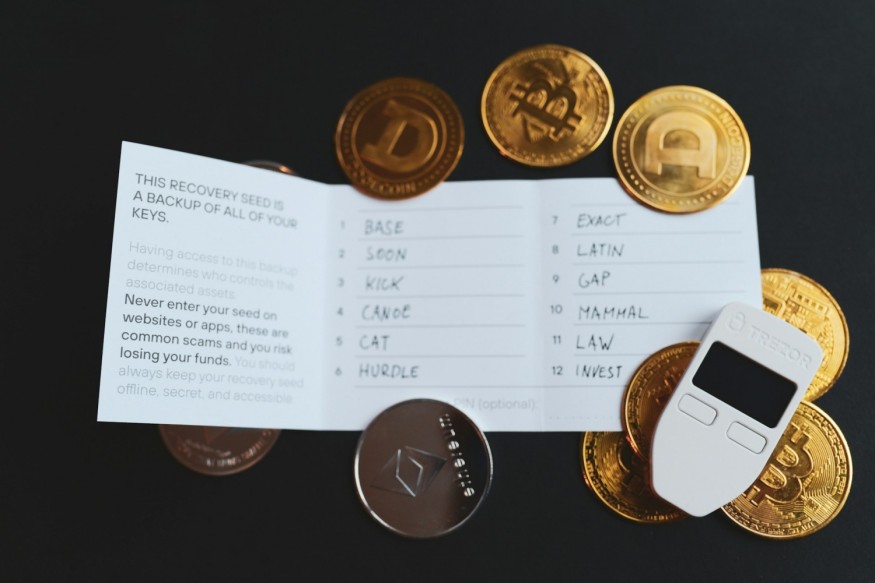
On the one hand, cryptocurrency is described as being a safer alternative to fiat currencies for payments. On the other hand, governments and financial institutions perpetually warn about the dangerous hacks and scams that pervade the industry. Cryptocurrency payments are considered secure. They also offer a degree of anonymity and privacy.
There have been well-documented cases of exchanges being hacked, while phishing and other socially engineered scams are as common in the crypto industry as they are in any other, possibly more so due to the big numbers involved. Below, we look at how secure crypto is and offer some advice on how to maintain your privacy while using digital currencies.
Secure Storage
Whether you're buying crypto for a specific transaction or are looking to invest and hold cryptocurrency as a long-term investment, you need a secure wallet.
Exchanges, including Coinbase and Binance, enable you to hold your crypto in your account, but because of the risk of the exchange being hacked, this is the least secure option.
Cold wallets are physical devices that disconnect from the Internet and are not prone to spyware, malware, or device hacking. These offer the highest levels of security, but they may not be necessary for most investors.
A hot wallet is installed on your mobile devices, laptop, PC, or other device. It holds your crypto balance away from exchanges, but because your device connects to the Internet, it isn't quite as secure as a cold wallet. The best decentralized crypto wallets offer high levels of security and provide additional features, such as the ability to generate a new wallet address whenever you send a payment or transfer. Crypto expert Kane Pepi advises using a decentralized wallet to retain ownership of the private ownership keys.
Exchange Security
The choice of exchange is also important. There are instances of exchanges being hacked and users losing their holdings. One of the most famous was the hack of the Mt. Gox exchange, which resulted in the loss of about 900,000 Bitcoins. This was a decade ago, but creditors are only now getting a portion of the money they were owed back.
Choose an exchange with a solid reputation that is transparent about its privacy and security practices, and don't keep your crypto balance on the exchange. Once you've transferred out of fiat, transfer the balance to a decentralized wallet.
Encrypted Payments
Cryptocurrency payments are sent using asymmetric cryptographic encryption. That means every payment uses two cryptographic keys—one public key and one private key. This form of encryption ensures that only the intended recipient can decrypt the payment and accept the funds. This helps make crypto payments themselves more secure than most alternative means of transferring money.
Payments cannot be diverted, and once they've been sent, they can't be reversed. If the sender needs a refund, the recipient must initiate another transfer to send the money back, rather than this being processed automatically, but the process helps ensure payment integrity.
Privacy and Anonymity
The new payment technology is gaining popularity, with many online sellers and businesses now accepting Bitcoin and other cryptos. Crypto gambling has also become popular, thanks to cryptocurrency's anonymity.
Most cryptocurrencies offer pseudo-anonymous, or pseudonymous, payments. Individual personal details are not transmitted and, therefore, cannot be tracked, although wallet addresses are submitted as part of the payment. And there is a growing number of cryptocurrencies that do offer complete anonymity and, therefore, private payments. This level of privacy helps enhance security because it enables users to keep their spending and balances to themselves.
Immutable Records
When traditional payments are sent, details of the payment are transferred. In some instances, hackers and criminals can divert those payments by altering payment records. Bitcoin and other cryptos use blockchain, which is immutable. This immutability means that once an entry has been registered on the blockchain, it cannot be altered, reversed, or deleted.
In addition to helping make crypto payments more secure, the immutability of cryptocurrency also makes auditing more efficient and simpler. However, it does make processes like refunds more difficult because the recipient will need to manually initiate a new payment for the value of the initial payment.
Verifiable Transactions
The immutability of blockchain records improves auditing, and it also makes records easily verifiable. Once a transfer has been verified, as part of the remittance process, a record is permanently and irrefutably stored on the blockchain network. Using a blockchain viewer, anyone can view any transaction.
The wallet addresses are usually visible, which means that these records can be used to verify transactions from the sender's and recipient's ends. This allows for greater transparency and can be used to build trust between sender and recipient, as well as for auditing.
Common Scams
Some of the most common scams that hit the cryptocurrency industry are not specific to crypto.
Phishing scams encourage users to visit fake or fraudulent sites and enter their personal details. This can include websites set up to look like legitimate exchanges. Users enter their user credentials, which the scammer can then use to access their accounts on the genuine website. Banks and other accounts suffer the same phishing scams.
Fake apps can also be found on Android and Apple devices, including fake wallets.
Confidence scams are also common. Ads and reports of massive profits from fake investment companies, often using edited photos of celebrities, encourage users to pay for their schemes.
Users should never follow links and instead manually enter website addresses. Don't trust emails that haven't been requested, and always research any apps, exchanges, wallets, or other websites and services before using them. Similarly, always check the credentials of websites and recipients before sending cryptocurrency payments to them because it can be very difficult to recover lost cryptocurrency.
Conclusion
Cryptocurrency payments offer security and privacy, but users do need to follow best practices to help ensure their own privacy. Choose a reputable and reliable decentralized wallet, use a secure exchange, and always do research on companies or individuals before sending payments.











